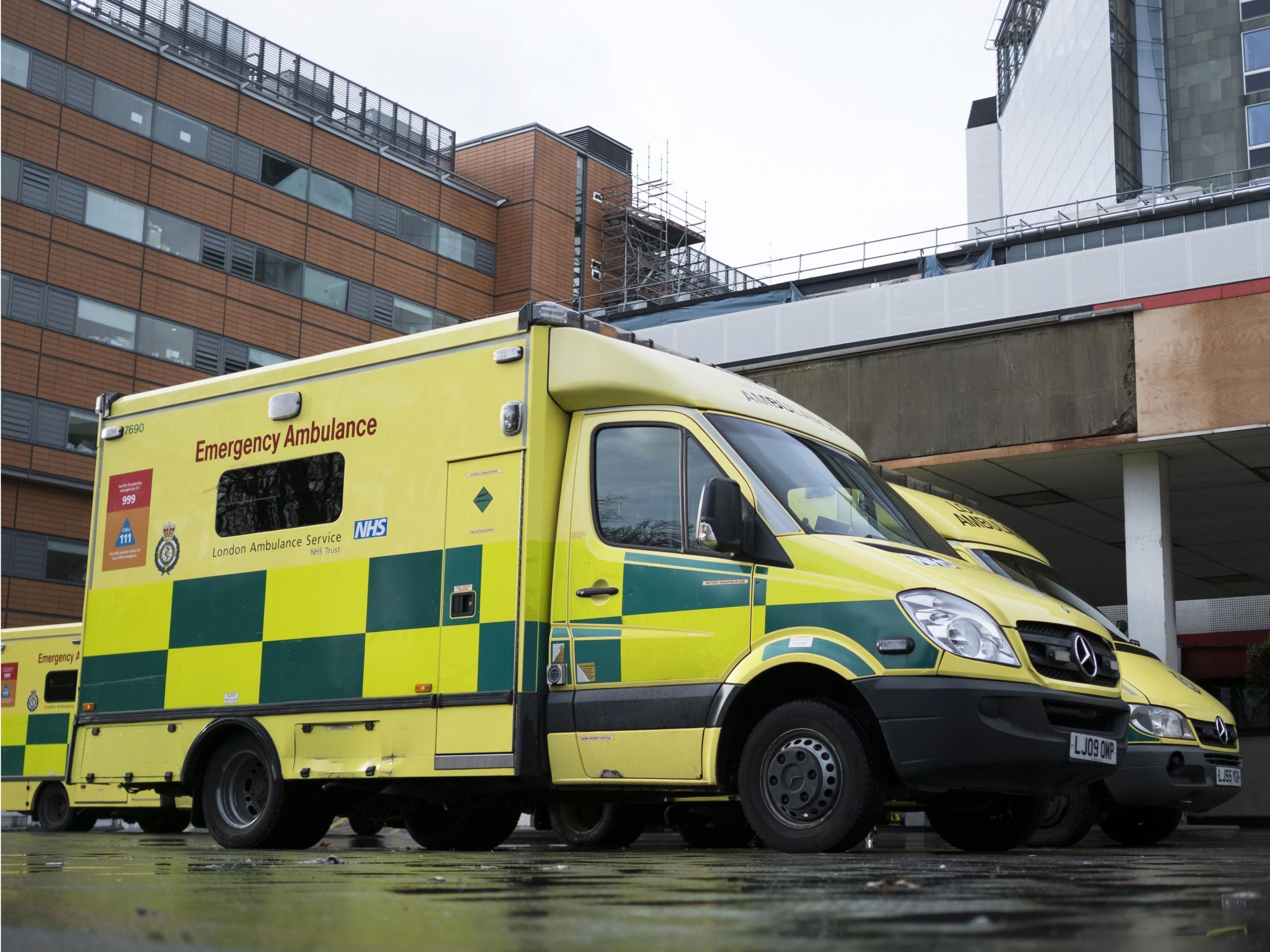A&E performance hits new record low with no sign of spring recovery, latest NHS figures show
Hospital bosses point to eight years of staff pay freezes and underfunding in both health and social care

More patients than ever before were left waiting longer than four hours in A&E departments in March with no sign that the arrival of spring has brought any relief for the stretched health service, official figures show.
Data from NHS England revealed on Thursday just 84.6 per cent of patients in emergency rooms and urgent care walk-in centres were seen within four hours last month, well below the 95 per cent target that was last hit in 2015.
The arrival of the “Beast from the East” storm brought snow across the country just as the weather would usually be improving and NHS leaders warned of pressures lasting into summer.
The figures are even more stark when only performance in major A&E departments, the 24-hour centres set up for critically ill patients that are always led by a consultant, are considered, with only 76.4 per cent of patients treated, admitted or sent home within four hours.
December, January, and February each set new record low performance benchmarks – 77.3 per cent, 77.1 per cent and 76.9 per cent respectively – in a winter of unparalleled pressure.
The government and NHS England have called this winter a “perfect storm” as it had to contend with the biggest flu outbreak for six years, cold weather and spikes in norovirus.
However, NHS leaders have pointed to eight years of staff pay freezes and the underfunding in both health and social care that they say have made it impossible to discharge healthy patients and free up beds for those who are sick.
The government has committed less than half the funding economists say is needed for the current year and announced an emergency £335m injection in the Autumn Budget to see the NHS through the winter – just days before it officially began.
These pressures come despite the cancellation of thousands of non-urgent operations and appointments in December and January intended to free up capacity.
This drastic move will require these appointments to be rescheduled and make it likely that waiting times targets for less urgent care will also be hit.
NHS England’s latest figures show that 2,236 people have now waited longer than a year for treatment, while the target of treating 92 per cent of people within 18-weeks of a GP referral has not been achieved for two years – amounting to nearly half a million people
Ian Eardley, senior vice president of the Royal College of Surgeons and a consultant urological surgeon, said: “A&E departments were snowed under by a second big freeze of the winter, with heavy demand carrying on well into March.
“This has resulted in some hospitals continuing to cancel planned operations so that they could prioritise patients needing emergency care.”
While cancer operations were meant to be spared from the suspension of non-urgent care, figures show hundreds of these patients were cancelled on as their trusts struggled to cope, in addition to those left in pain waiting for hip operations or cataract surgeries.
“Cancelling cancer operations is utterly unacceptable and to avoid such a situation arising again, planning for next winter must start now,” Mr Eardley added.
“There also needs to be a concrete plan for dealing with the backlog that has grown over this winter.”
Ian Dalton, chief executive of NHS Improvement, said: “These statistics highlight the mammoth pressures facing the NHS this winter, which have continued into March. Nobody working in the NHS will be happy with the effect this has had on how quickly we have seen and treated patients.”
He said the “tireless work” of staff had meant the NHS coped with a record number of patients coming through its doors and had cut the number of patients stuck in hospital when they were well enough to be sent home.
“April tends to mark the point where pressures on the NHS starts to decrease, but we cannot be complacent,” Mr Dalton added.
Join our commenting forum
Join thought-provoking conversations, follow other Independent readers and see their replies
Comments
Bookmark popover
Removed from bookmarks